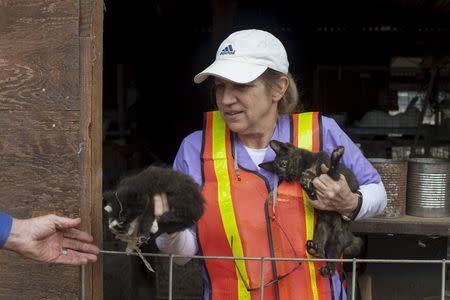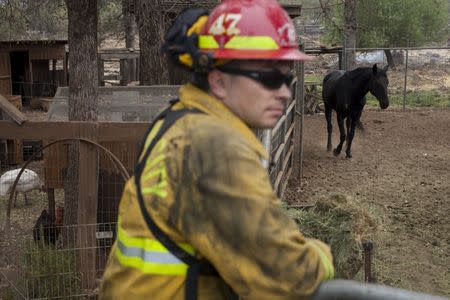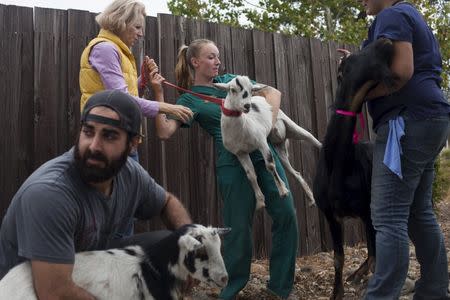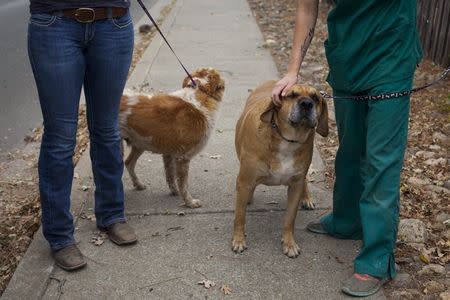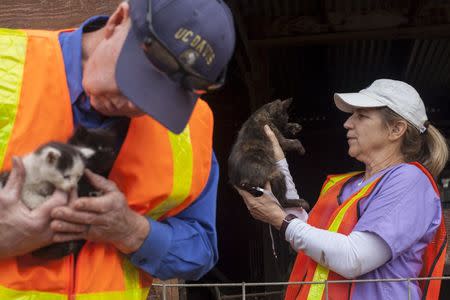As California fire rages, volunteers search for wounded, sick animals
By Curtis Skinner MIDDLETOWN, Calif. (Reuters) - Dr. John Madigan usually works as a professor at the University of California Davis School of Veterinary Medicine. But since Monday, he has been driving through fire-ravaged communities in northern California searching for animals left behind by residents who fled for their lives. Madigan was working with a handful of volunteers in Middletown on Tuesday providing relief and attempting rescues for stranded pets, animals and livestock as firefighters have focused their efforts on battling the 67,000-acre (27,000-hectare) blaze. Madigan, who founded the UC Davis Veterinary Emergency Response Team and was called on to help, has treated hundreds of animals in emergency situations over several decades. He said the "explosive spread" of the so-called Valley Fire kept residents from evacuating with their animals. "This is really bad," he said. On Tuesday, he and UC Davis veterinarian Patricia Andrade drove through the blackened, winding hills up to Hidden Valley Lake, one of the communities hardest hit, to care for an injured horse on a small farm. After that, he was slated to check on other animals reported by word of mouth to be stranded. The narrow roads remained covered with debris in parts, power and telephone lines draped across or over them, and fires still smoldered at some scorched homes and ranches. But in the absence of an owner, someone had to treat the hurt mare, who had an exposed wound on her front right shoulder. "This is not your average call," Madigan said, after he and Andrade wrangled the mare away from an aggressive stallion to apply antibiotic ointment and give her a tetanus shot. "Veterinarians don't usually have to rope their patients and then tie 'em to a tree ... so they can treat the other horse in there," he said. "We call that cowboy-up veterinary medicine." The fire has ravaged the hills north of Napa County's wine-producing region since Saturday. At least one person has been killed, nearly 600 homes destroyed, and about 13,000 people forced to flee. Lake County sheriff's deputies on Tuesday began escorting some evacuees back to properties to temporarily tend to pets or livestock left behind. But conditions remained unsafe, and authorities said residents whose homes remained intact would not be able to reoccupy their houses for at least another couple of days. "We're basically here until people are let back in and they can take care of their animals," Madigan said. (Reporting by Curtis Skinner; Editing by Daniel Wallis and Lisa Shumaker)
